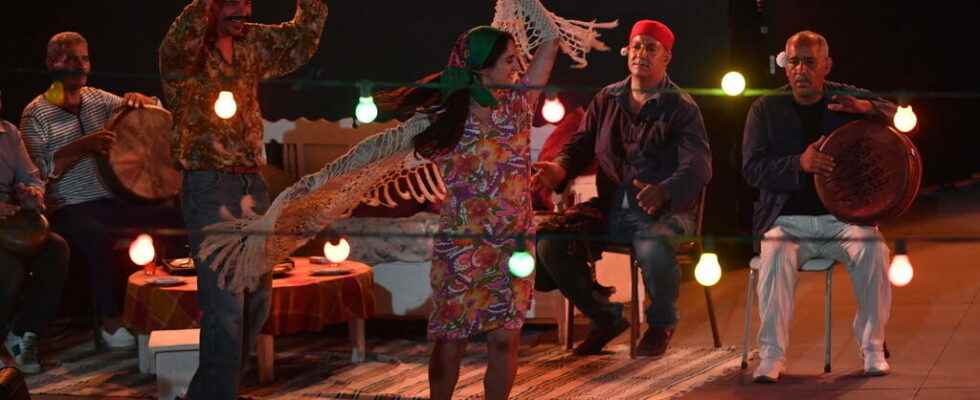The theatrical scene of Tunisia has known for several years the emergence of a new generation of authors who explore Tunisian society and question the future of a country in full metamorphosis.
The Hammamet International Festival presents from July 13 to August 19 several plays by the young generation, including Wafa Taboubi, author and director of The last. This piece obtained the grand prize of the Carthage Theatrical Days of the best Arab-African show.
This social piece with political resonances, treated with simplicity, accuracy, rigor and depth, deals with the relationship between man and woman through the story of a couple. The two actors, Meriem Ben Hamida and Oussama Kochkar, are breathtaking in their acting. And after six months of rehearsal, the play has found its audience.
“ I saw a fight between a man and a woman in the street, I saw a verbal and physical aggression between the two, this aggressive act touched me and I had tears in my eyes, says Wafa Taboubi. I said: “Here, I have to write something, to say that we have to love each other, talk to each other more, dialogue again to avoid this aggressiveness”. Aggression for me is not a solution, it is a disaster. The last is a two-speed text: verbal and bodily. Both emphasize the importance of love. »
In The last, there are no more human beings, only a man and a woman survived. This could be as a result of a natural disaster or a pandemic that has affected the earth. Surrounded by the nothingness that dominates the outer space, loneliness, boredom and a feeling of weariness, the couple decides to play the game of time, fear, isolation, suspicion and conflict with nature. ‘other. To play, because everything, in the end, is imaginary.
► Read also : Tunisia: return of the Carthage International Festival after two years of Covid
A dynamic and varied theater scene
According to a recent census, Tunisia now has more than 350 active theatrical groups and companies. Artists challenge society and present works that mix artistic forms.
” Since the revolution, there are two trends, explains the academic Mohamed Moumen, researcher and theater critic. Those who talk about the new evils of Tunisian society, the political and social evils, the new morals that are emerging, the political values that are appearing. There is a section like that in Tunisian theater which constantly raises this kind of questioning, questions, trials too, there is a lot of denunciation. And then there is a theater attentive to theatrical forms which always wants to be a little bit fashionable, with the latest discoveries in theatrical forms. How it is expressed, many artists no longer want to confine themselves to the known genre, to established forms… What we see most often in Tunisian theater today are experiences that come under the post-dramatic framework. There is like a jolt, a tremor that has happened. »
► To read also: Tunisia: behind the scenes of the “Hadhra”, a show of the most popular
